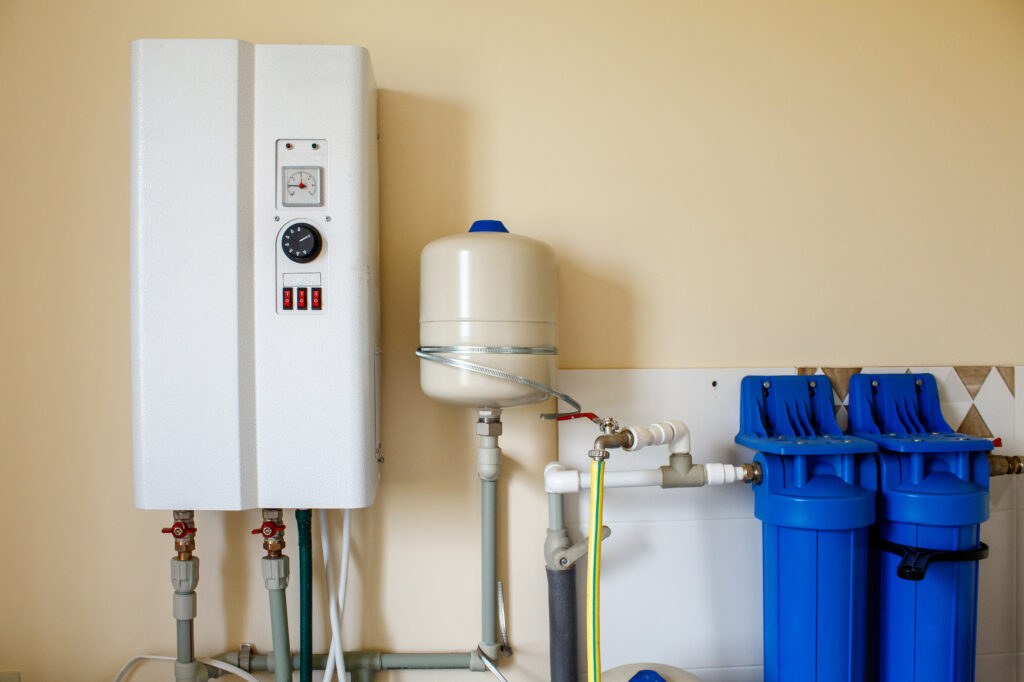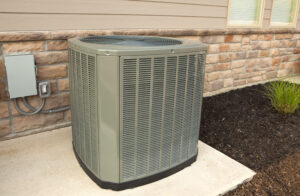Innovative HVAC systems are at the forefront of sustainability, championing energy efficiency and reduced emissions. These systems advocate for the adoption of renewable energy sources to cool buildings, leading to a significant decrease in energy consumption and carbon emissions. By integrating smart technologies, HVAC systems not only promote sustainable practices but also foster the best energy-saving behaviors for a lasting environmental impact.
The Role of Energy-Efficient Heat Pumps
Energy-efficient heat pumps play a crucial role in diminishing energy expenses and carbon emissions. By harnessing advanced technologies, these pumps underscore the importance of sustainability and energy efficiency within HVAC systems. Looking ahead, the integration of renewable energy sources promises long-term financial savings and environmental benefits. High-performance heat pumps stand out as sustainable and energy-efficient options for heating and cooling solutions.
Renewable Energy Integration in HVAC Systems
The integration of renewable energy sources into HVAC systems represents a transition from conventional fuels. Solar panels and wind power are key components in promoting sustainability, reducing energy costs, and minimizing carbon footprints. Modern HVAC systems use solar and wind energy to achieve sustainable cooling in commercial buildings, setting the stage for future-oriented sustainability practices.
The Rise of Smart HVAC Systems
HVAC systems are revolutionizing the landscape with enhanced energy efficiency, automation, and sustainability. By integrating the Internet of Things (IoT) and cutting-edge technologies, these systems optimize energy usage. Smart thermostats and AI-driven innovations lead the charge in efficiency and sustainability, heralding a new era in HVAC technology where automation and environmental considerations are paramount.
Importance of Smart Thermostats and AI-Driven Systems
Smart thermostats and AI-driven systems are pivotal in optimizing energy consumption and ensuring indoor comfort. Their integration into HVAC technologies boosts energy efficiency, sustainability, and performance. With a focus on automation, these systems are trailblazers, paving the way for a sustainable and technologically advanced future in commercial HVAC.
Internet of Things (IoT) Integration in HVAC
The integration of IoT in HVAC systems emphasizes the commitment to sustainability, energy efficiency, and automation. This sophisticated synergy optimizes energy utilization, indoor air quality, and overall system performance. The future of commercial HVAC is intertwined with IoT, driving sustainability and energy efficiency to establish long-term industry best practices.
Maintaining Improved Air Quality with Advanced HVAC Systems
Innovative HVAC systems are designed to prioritize air quality, humidity control, and sustainability. By incorporating advanced air purification technologies, these systems are set to improve indoor air quality, comfort, and energy efficiency. They cater to the increasing demand for healthier indoor environments by emphasizing improved air quality and sustainable practices.
Understanding Advanced Air Purification Systems
Advanced air purification systems are integral to HVAC technologies, optimizing indoor air quality and comfort. They focus on maintaining humidity levels, preventing mold, and promoting sustainability. These systems are essential in both residential and commercial HVAC applications, ensuring better air quality and a sustainable future.
The Impact of HVAC on Indoor Air Quality
HVAC systems play a critical role in maintaining indoor air quality by regulating humidity and providing effective ventilation. They filter out pollutants and allergens, significantly improving air quality. The integration of smart technologies, such as air scrubbers and UV lights, further enhances purification efforts.
Ensuring Personalized Comfort
Advanced HVAC technologies provide personalized climate control to meet individual preferences. Leveraging data analytics, these systems fine-tune temperature, air quality, and humidity levels for optimal comfort. Smart thermostats and IoT integration enable automation and customization, while occupancy sensors optimize energy use.
The Role of Nanotechnology for Efficiency
Nanotechnology greatly enhances the energy efficiency and sustainability of HVAC systems. It facilitates superior heat transfer, leading to notable energy savings. The application of nanotech coatings is poised to revolutionize HVAC efficiency.
Customized Climate Control with Modern HVAC Systems
Modern HVAC systems offer customized climate control for both commercial and residential settings. They utilize zoned heating and cooling to maximize comfort and energy efficiency. Smart sensors adapt to environmental changes, while IoT integration facilitates real-time adjustments in response to weather fluctuations, ensuring energy-efficient temperature regulation tailored to individual needs.
Predictive Maintenance: A Game Changer
Predictive maintenance is a data-driven approach to maintenance that uses sensors and software to monitor equipment and predict when it is likely to fail. This allows for preventive maintenance to be scheduled before a failure occurs, reducing downtime and the cost of repairs.
The Advent of Predictive Maintenance in HVAC Technology
The introduction of predictive maintenance in HVAC employs AI and machine learning to foresee and prevent system issues, emphasizing proactive maintenance. Real-time monitoring through advanced sensors and data analysis allows for early problem identification, minimizing disruptions and securing cost-effective, continuous operation.
Benefits of Predictive Maintenance in HVAC Systems
Predictive maintenance is revolutionizing the HVAC industry by providing a number of benefits, including:
- Reduced downtime: By detecting and repairing problems before they cause a failure, predictive maintenance can significantly reduce downtime. This can save businesses money in lost productivity and revenue.
- Lowered operational costs: Predictive maintenance can also help to lower operational costs by reducing the need for emergency repairs. Emergency repairs are often more expensive than scheduled maintenance, and they can also lead to lost productivity and revenue.
- Improved performance: By ensuring that equipment is properly maintained, predictive maintenance can help to improve its performance. This can lead to increased efficiency and productivity, as well as reduced energy consumption.
- Enhanced sustainability: By extending the lifespan of equipment, predictive maintenance can help to reduce waste and environmental impact.
IoT and data analytics are essential for predictive maintenance. IoT sensors collect data on the performance of equipment, and data analytics software uses this data to identify patterns and trends that can indicate potential problems. This data can then be used to schedule preventive maintenance before a failure occurs.
Predictive maintenance is a valuable tool for HVAC businesses of all sizes. By reducing downtime, lowering operational costs, improving performance, and enhancing sustainability, predictive maintenance can help businesses to save money and improve their bottom line.
How Will HVAC Technology Shape Our Lives in the Future?
The future of HVAC technology is promising, with a focus on electrification, renewable energy, and sustainability. The integration of AI, IoT, and data analytics will enable smarter, more energy-efficient operations. These technological advancements are set to reshape our approach to climate control and energy management.
In the years to come, HVAC technology is poised to transform the way we experience comfort and sustainability in our homes and businesses. With advancements in energy efficiency, smart systems, air purification, and personalized comfort, the future of HVAC is bright.
By integrating renewable energy sources, such as heat pumps and IoT technology, HVAC systems will become more eco-friendly and cost-effective. Additionally, nanotechnology will improve efficiency, while predictive maintenance will ensure optimal performance and reduce downtime.
Looking ahead, it is clear that HVAC technology will play a vital role in creating healthier, more comfortable, and sustainable environments for all. Stay tuned for the exciting developments in the world of HVAC technology!





